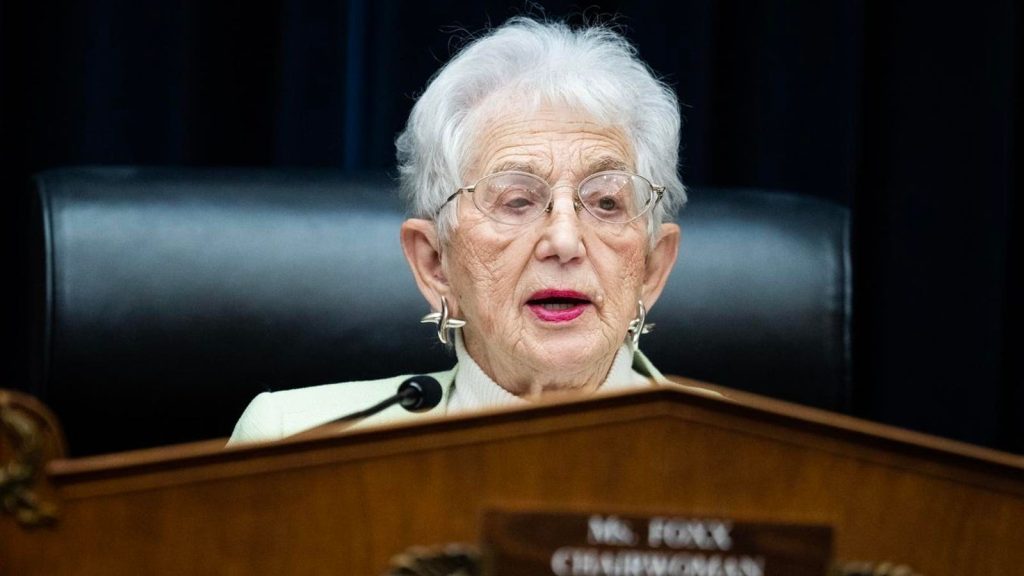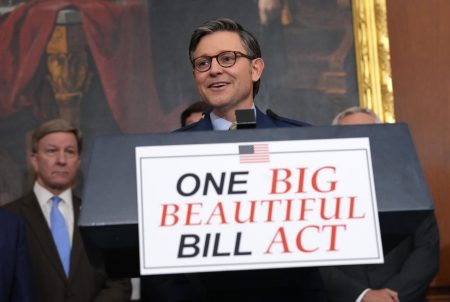Paragraph 1: Republican Reconciliation and Student Loan Reform
The Republican Party, poised to control the White House and both houses of Congress in 2025, is strategizing to utilize the budget reconciliation process to enact key legislative priorities, including potential reforms to student loan programs. Reconciliation allows legislation to pass with a simple majority in the Senate, bypassing the usual 60-vote threshold required to overcome a filibuster. While extending the 2017 Tax Cuts and Jobs Act remains a primary focus, Representative Virginia Foxx (R-NC), Chairwoman of the Education and the Workforce Committee, has signaled that student loan forgiveness reform, specifically targeting income-driven repayment (IDR) plans, could also be incorporated into the reconciliation bill. This move aligns with the broader Republican stance on fiscal responsibility and reducing government spending.
Paragraph 2: The College Cost Reduction Act and IDR Overhaul
Foxx’s proposed legislation, the College Cost Reduction Act, aims to significantly reshape the landscape of federal student loan repayment. The bill would eliminate existing IDR plans for new borrowers, replacing them with a simplified system comprising a Standard plan and a new IDR plan termed the “Repayment Assistance Plan.” This new IDR would calculate payments based on income, similar to existing plans like PAYE and REPAYE, but crucially, it would eliminate the provision for loan forgiveness after 20 or 25 years of repayment. Instead, forgiveness would only be granted after repaying the equivalent of a standard repayment plan’s principal and interest, potentially trapping some borrowers in perpetual debt. While the proposed changes would apply to loans originated after July 1, 2024, existing borrowers could ostensibly retain access to current IDR plans, although this is subject to separate legal challenges.
Paragraph 3: Legal Challenges and the Future of IDR Forgiveness
The viability of existing IDR plans faces significant legal uncertainty. The 8th Circuit Court of Appeals has already blocked the implementation of President Biden’s SAVE plan, a revised IDR plan, and could potentially invalidate other IDR plans based on similar legal grounds. If the court’s ruling is broad enough, even long-standing plans like ICR and PAYE, which have historically offered forgiveness after 20 or 25 years, could be jeopardized. The Trump administration’s stance on IDR forgiveness remains unclear, but they could strategically choose not to appeal an unfavorable 8th Circuit ruling, effectively ending time-based IDR forgiveness. This presents a significant challenge for borrowers relying on these programs for eventual debt relief.
Paragraph 4: Broader Impacts of the College Cost Reduction Act
Beyond IDR reform, the College Cost Reduction Act proposes other sweeping changes to federal student loan programs. These include the elimination of Parent PLUS and Graduate PLUS loans, which, while carrying higher interest rates, also provide access to federal loan benefits. This elimination could force borrowers to seek private loans with potentially less favorable terms. The bill also incorporates provisions that some borrower advocates find positive, such as a second chance for defaulted borrowers through rehabilitation programs, interest subsidies for the new IDR plan, prioritized principal payments under certain conditions, reduced interest capitalization, and greater emphasis on borrower accountability.
Paragraph 5: Political Calculus and the Path Forward
The ultimate fate of these proposed changes, including the elimination of time-based IDR forgiveness, remains uncertain. The inclusion of these provisions in the reconciliation bill hinges on ongoing negotiations amongst Republican lawmakers. While some view the proposed reforms as a necessary measure to curb perceived excesses in student loan forgiveness programs and rein in spending, others express concern about the potential impact on borrower access to affordable education and long-term debt burdens. The debate reflects the ongoing political divide over the role of government in higher education financing.
Paragraph 6: Balancing Fiscal Responsibility and Borrower Needs
The proposed student loan reforms highlight the complex interplay between fiscal responsibility and the need to provide accessible and affordable higher education. The Republican push for reform reflects concerns about the long-term costs of student loan programs and the perceived unfairness of transferring debt burdens to taxpayers. However, critics argue that these reforms could disproportionately impact low- and middle-income borrowers, potentially exacerbating existing inequalities in access to education and economic mobility. The coming months will be crucial in determining the final shape of these reforms and their impact on the millions of Americans burdened by student loan debt.










